What is Fenugreek Herb – Lets go back 4000 Years
Fenugreek, One of The Oldest Herbs in the Books
Are you wondering what is fenugreek herb? Hold on to your seat, because the aromatic and healthy herb has quite a history.
When anthropologist Howard Carter uncovered Tutankhamen’s nearly intact tomb, he found traces of fenugreek, and fenugreek seeds were recovered from Tell Halal, in Iraq. They go over 4000 years back in history. How did fenugreek become so popular for so many years? And what place does the herb takes in today’s world?
Here’s all you wanted to know about fenugreek, what is fenugreek herb, what is fenugreek oil, and everything in between.
What is Fenugreek Herb
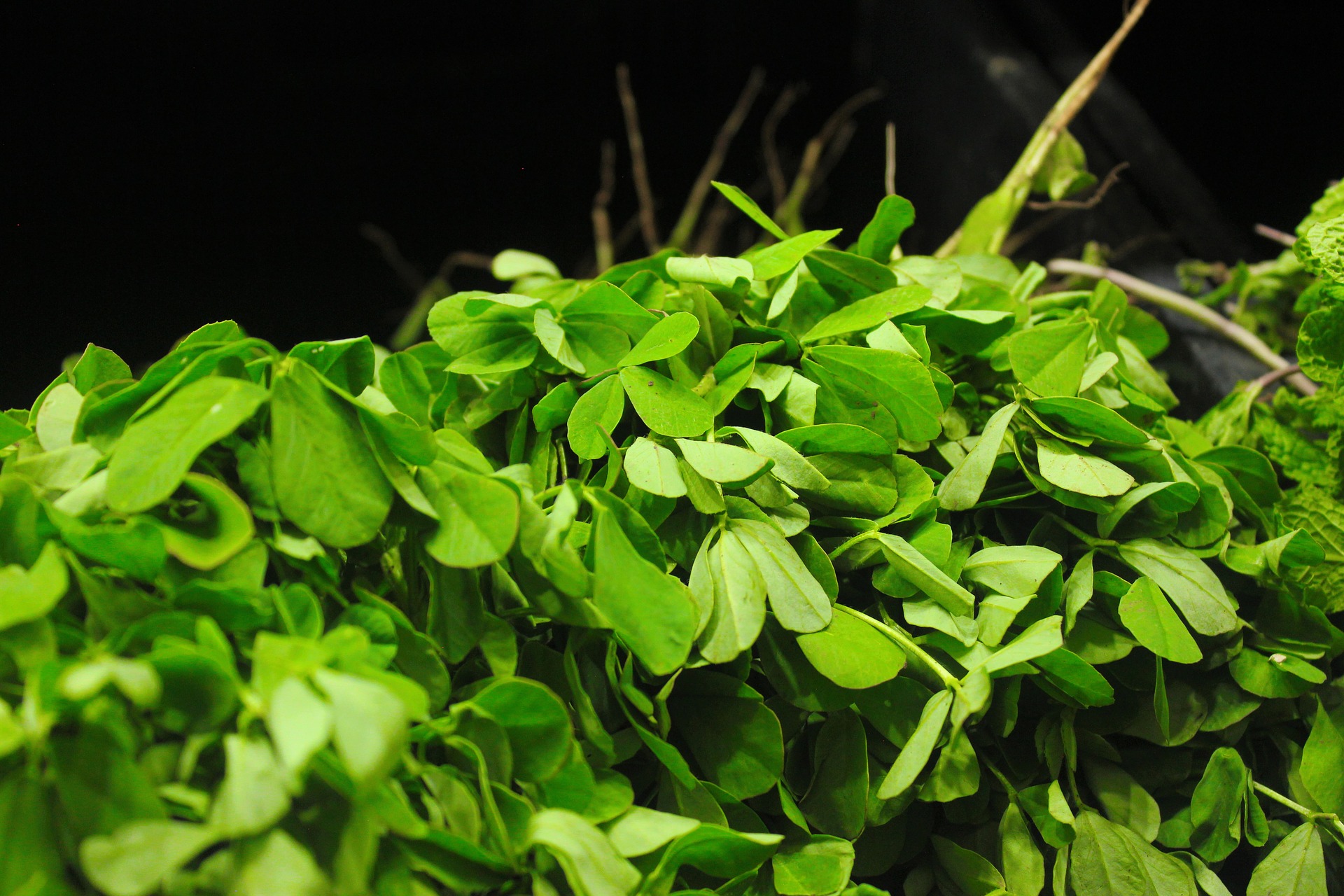
Fenugreek is an annual plant in Fabaceaehas family, and its origins in the Near East are hard to pinpoint. Today, the largest producer for the herb is India, as it’s an essential crop in Rajasthan. Other countries producing the noble herb are Afghanistan, Pakistan, India, Iran, Nepal, and Bangladesh.
Although India consumes lots of fenugreek, the largest importers are the United Emirates, Yemen, Japan, South Africa, UK, and the US. So, what do people do with fenugreek?
Fenugreek is a herb, a spice, and a vegetable. It’s a critical ingredient in Indian curries, and it’s commonly added to pickled veggies. Fenugreek sprouts are popular microgreens in salads, and small bundles of the herbs and their roots are common in Indian bazaars.
The seeds, the leaves, the roots, and the leaves, for fenugreek, everything is used and traded. Although not the most common herb in the West, fenugreek’s reputation is global.
The Science Behind Fenugreek
As with any other medicinal herb, root, or seed, there’s a set of bio-active compounds in fenugreek behind its nutrition and health benefits. In this case, it’s sotolon.
Sotolon is a lactone, a molecule with aromatic properties found in fenugreek’s leaves and seeds; it’s also the major component in fenugreek oil. Solon has an aroma reminiscent of maple syrup, butterscotch, caramel, nuts, and raw sugar.
You’ll find sotolon in other sources, including sugar molasses, aged rum, and even in some wines. We use sotolon in artificial maple syrups, lots of candies and confectioneries, and it gives curry its sweet smell.
Nutritional Benefits of Fenugreek

Fenugreek leaves are not only medicinal; they’re quite adequate nutritionally. 100 grams of fenugreek add 6 grams of carbohydrates, almost 5 grams of protein, and one gram of healthy plant-based fat.
18% of your daily calcium need and a staggering 262% of the iron needed for the day comes from only 100 grams of fenugreek. Manganese, magnesium, and phosphorus are well represented as well.
Although fenugreek is perfectly safe to eat, and its health benefits are easily enjoyed, large amounts of concentrated fenugreek oil are better avoided. There’s still medical researched to clear large concentrations of fenugreek oil from side effects.
Fenugreek’s Health Benefits
Fenugreek plays a leading role in traditional medicine, which goes back for centuries. Fenugreek is still not well represented in modern medicine, but it’s hard to argue compounds in the herb impact our health. Here are fenugreek’s most important alleged health benefits.
- Studies have shown drinking fenugreek infusions can increase breast milk production in lactating mothers with impressive results. Considering many new mothers have trouble lactating, and that breast milk is the most important source of nutrients in newborns, this discovery is encouraging.
- Fenugreek might increase libido, boosting testosterone levels. Although more research is needed, fenugreek could help improve sexual functions in men.
- Adequate amounts of fenugreek can control blood sugar levels, aiding metabolic conditions, and increasing insulin sensitivity. The herb could be part of treatments for diabetes in the future.
- Fenugreek might reduce levels of bad, low-density cholesterol in the bloodstream, clearing arteries, and preventing heart disease.
- Fenugreek oil has proven to be a potent anti-inflammatory that could aid against chronic inflammation and hypertension.
- Many other health benefits associated with fenugreek include reducing heartburn, aiding appetite, and aiding against colitis, but more research is needed to consider these benefits safe. Remember, use supplements wisely.
How to Cook With Fenugreek
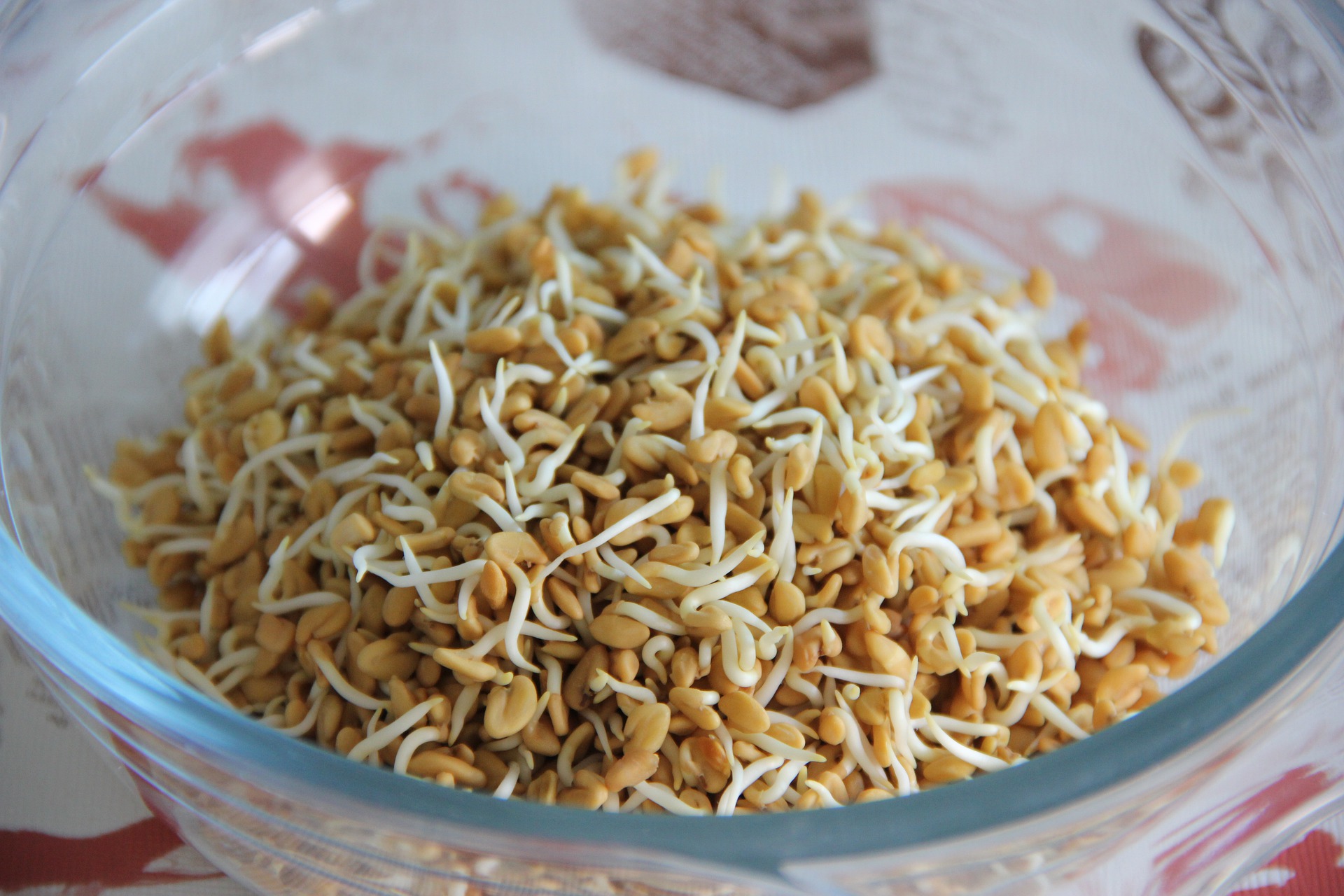
Fenugreek is an ingredient in many Indian spice blends, including the famous garam masala. It can season curries, lentil stews, and soups. Indian curries, chutneys, and the renowned lentil dal are flavored with the spice.
North African cuisines make good use of fenugreek as well. Ethiopian butter flavored with the herb is used in many stews and dishes made with veggies and meat.
Salads benefit from fresh fenugreek leaves and spouts, which is an everyday use in Mediterranean countries.
Perhaps the easiest way of enjoying fenugreek flavors and health benefits is as in tea. This is one of the most famous herbal infusions worldwide.
Fenugreek Might Be Ancient, But It’s Still Coveted Today
There’s lots to say about fenugreek, and much more to discover, both as food and medicine. The fact is that the aroma and flavors in this ancient plant are incredibly pleasing, and they’re out there to be enjoyed by everyone.
Start cooking with fenugreek and consume it for its flavor and health benefits. It’s a thousand-year-old tradition!
Feel free to shop for Fenugreek from our list of hand picked, tried and tested products at curated shop.
Highly Rated – Social Media Chatter on Fenugreek
If you are a young woman hoping to find Mr Right then I have some advice for you. To work out whether a gentleman is worthy of your affections, give him one simple task. Ask him to pick the leaves from 3 large bunches of fresh methi.
If your prospective match can complete this task competently and, most importantly, without complaint then you may have found a suitable soulmate. Surely it’s not too much to ask to assist you in preparing the Maharashtrian delicacy that is methichi bhaji? And if he knows anything about decent food he’ll surely know how delicious it is served with just a bhakri or two. That should be motivation enough to perform this fiddly job, without whining!
Of course you may wish to set further challenges before giving away your heart. But this test I feel should narrow the field a bit 🙂
There’s a mean methichi bhaji / fresh fenugreek stir-fry recipe on my blog for the foodie soulmate seekers amongst you:
https://zanzaneetkitchen.com/fresh-fenugreek-stir-fry-methichi-bhaji/
#methichibhaji #freshfenugreekleavesrecipe #fenugreek #indianstirfry #bhaji #maharashtrian #subzi #veganrecipeshare #veganrecipes #methi #memarathi #jevan #glutenfreeveganfood #winterstaples #wintereats #britishindian #ukfoodies #ukvegans #ukvegetarian #foodbloggeruk #glutenfreerecipe #beingfoodie #foodiesg #foodiesoul #foodiesoulmates #soulmatesforlife #ukmaharashtrians #ukindians #indiandiaspora #zanzaneetkitchen
Butter Pheasant Curry tonight and omg it was amazing if I do say myself, rich and tomatoey, light spices, creamy with a sprinkle of dried fenugreek, definitely one to do again, you can always substitute the pheasant for the more traditional chicken or even veggies but try the pheasant, best source of wild game bird there is! #butterchicken #murghmakhani #fenugreek #kashmirichilli #curry #indianfood #instafood #foodstagram #food#foodblogger #foodlover #cooking #cook #nodig #kitchengarden #allotmentgarden #organicgarden #thevictoriancottage
Sources:
- https://www.healthline.com/nutrition/fenugreek
- https://www.webmd.com/vitamins/ai/ingredientmono-733/fenugreek
- https://www.everydayhealth.com/diet-nutrition/diet/fenugreek-guide-benefits-types-uses-top-sellers-more/
- https://en.wikipedia.org/wiki/Fenugreek
- https://www.seriouseats.com/2010/10/spice-hunting-fenugreek-methi-how-to-use.html
- https://www.savoryspiceshop.com/fenugreek-seeds#:~:text=There are 4 ways you,to give it more flavor.
- https://sheffields.com/products/view_fact_description/5493#:~:text=Major fenugreek-producing countries are,Maharashtra, Haryana, and Punjab.

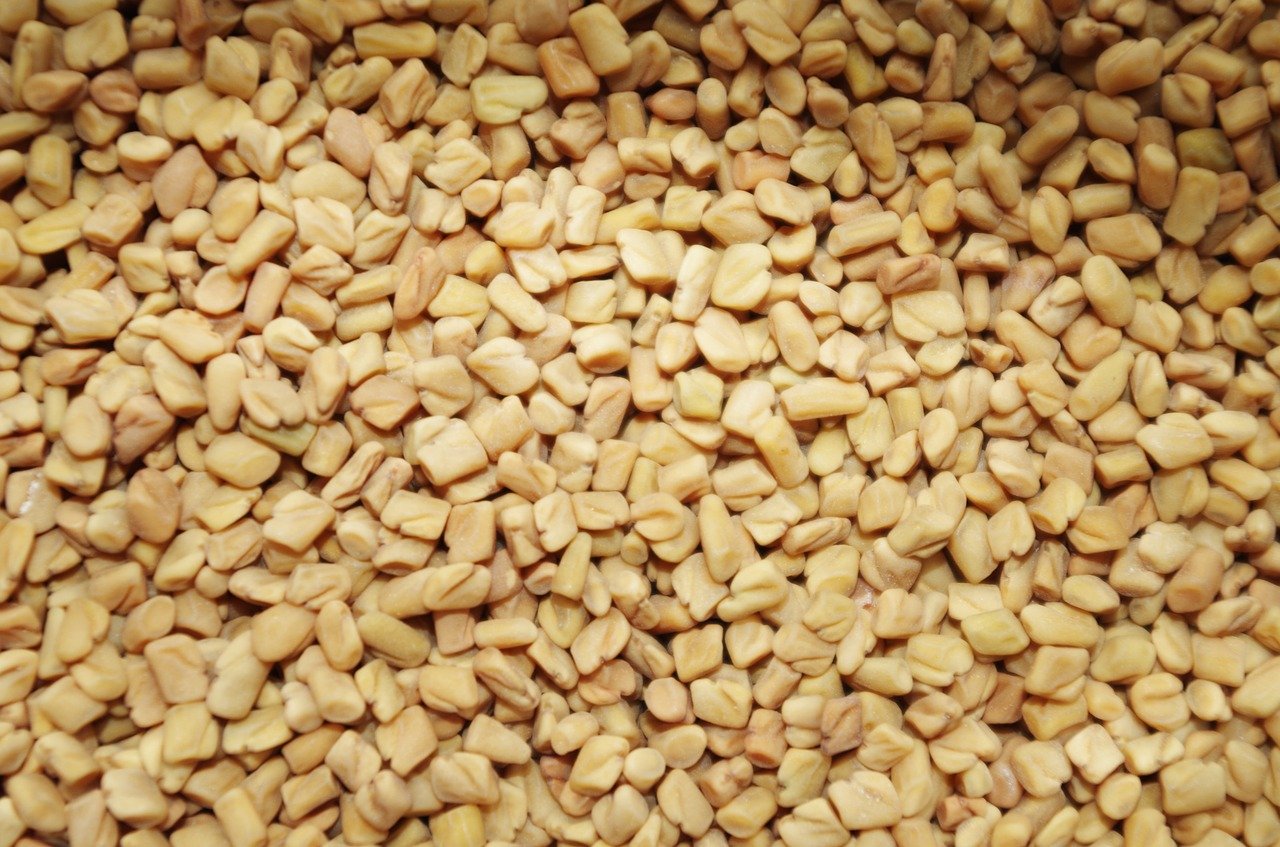


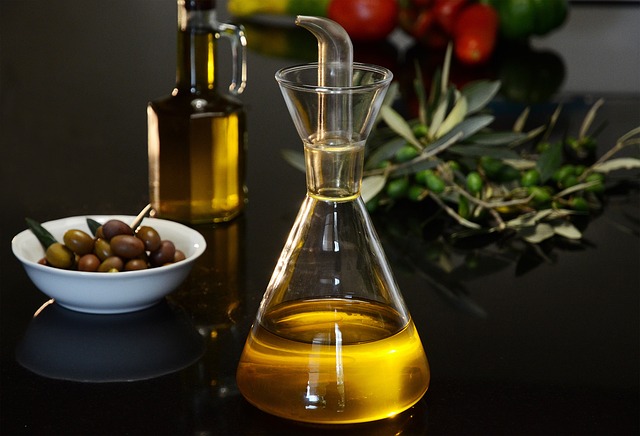
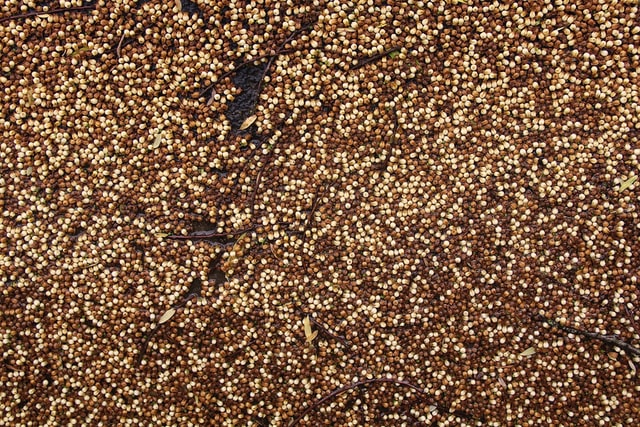
Fenugreek makes soups taste delicious! I discovered it when I wanted to make a curry and started experimenting with Fenugreek and Cardamom. When I made bean soups with these seeds, it would smell and taste heavenly.
I didn’t know you could actually sprout them as I sprout beans and lentils in my kitchen on a weekly basis. I knew that fenugreek has plenty of iron, but not that they increase lactation in women.
A very interesting article…thanks for sharing!
Thanks Stella
It is very interesting to read through this article, this is the first time I’m reading about fenugreek and I think this herb is really great at the benefits it has, it’s good that it is still in existence cos almost all the good herbs are not used anymore because of medicines. Thanks for bringing this to our attention.
Thanks Bruce
Wow, I have never seen this before even though my mum.was a big fanatic of spices. I did not usually go in to the kitchen with her very often. Away from the whole talk about my mum and spices, I feel like this fenugreek herb is really nice and it has so much benefits to human health too. I’ll check the local food store around here to see if I can get this herb.
Thanks Suz, fresh Fenugreek is hard to find in stores. You might be able to find seeds in store, though.